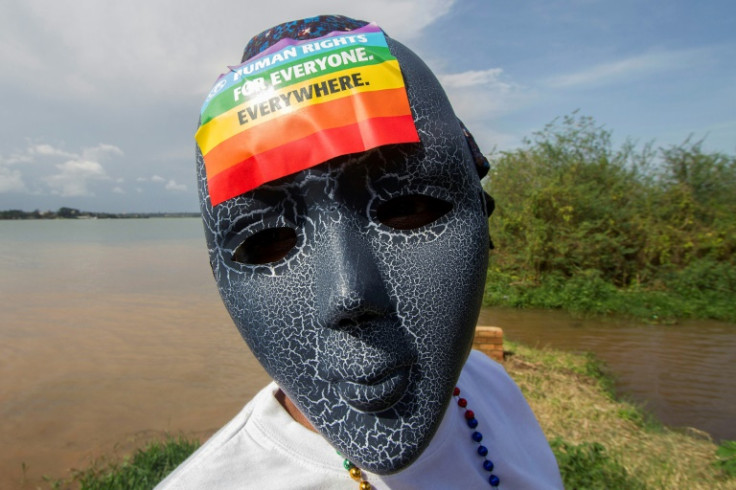Ugandan Charged Under Anti-gay Law Faces Possible Death Penalty

Ugandan prosecutors have charged a man with "aggravated homosexuality", potentially a capital offence under controversial anti-gay legislation introduced by the country this year, an official said Monday.
The law -- considered one of the harshest of its kind in the world -- contains provisions that make "aggravated homosexuality" an offence punishable by death and includes penalties for consensual same-sex relations of up to life in prison.
The suspect "was charged in Soroti (in eastern Uganda) and he is on remand in prison. He will be appearing in court for mention of the case," said Jacquelyn Okui, spokeswoman for Uganda's directorate of public prosecutions.
According to the charge sheet seen by AFP, the 20-year-old suspect was charged on August 18 and is accused of "unlawful sexual intercourse with... (a) male adult aged 41".
"Statement of offence: aggravated homosexuality contrary to... Anti-Homosexuality Act 2023", the charge sheet stated.
Okui told AFP she was not sure whether this was the first time that a Ugandan has been charged with "aggravated homosexuality" under the new law.
The draconian legislation, which was signed into law in May, has been condemned by the United Nations, foreign governments including the United States, and global rights groups.
This month the World Bank announced it was suspending new loans to the East African nation, saying the law "fundamentally contradicts" the values espoused by the US-based lender.
In May, US President Joe Biden called for the immediate repeal of the measures he branded "a tragic violation of universal human rights" and threatened to cut aid and investment in Uganda.
But the government has remained defiant and the legislation has broad support in the conservative, predominantly Christian country, where lawmakers have defended the measures as a necessary bulwark against perceived Western immorality.
Ugandan President Yoweri Museveni has accused the World Bank of using money to try to "coerce" the government to drop the controversial legislation.
Adrian Jjuuko, executive director of the Human Rights Awareness and Promotion Forum, said his organisation had "documented 17 arrests" in June and July following the adoption of the law.
Earlier this month, police arrested four people including two women at a massage parlour in the eastern district of Buikwe for allegedly engaging in same-sex activity following a tip-off.
© Copyright AFP {{Year}}. All rights reserved.





















